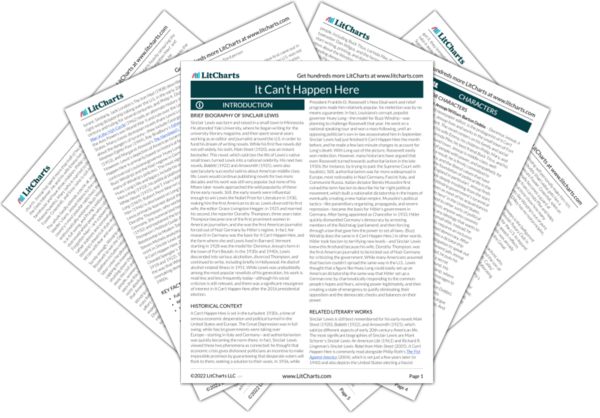Jessup and his agents demonstrate how grassroots activists can launch a democratic revolution from the ground up. Their mission is simple: they must talk to ordinary people about their lives, inform them about the nation’s dire political situation, and seek their voluntary support. Whereas the fascist regime maintains power through coercion and violence, the New Underground’s democratic revolution depends on telling the truth, respecting others, and viewing all people as equals. In fact, this is Lewis’s primary case for democracy: it’s the political system that naturally forms when everyone treats everyone else as equals. Any other system can survive only through injustice and repression. In fact, by encouraging the free and equal exchange of ideas, Jessup and his comrades are actually training people to
participate in a democracy, too.


